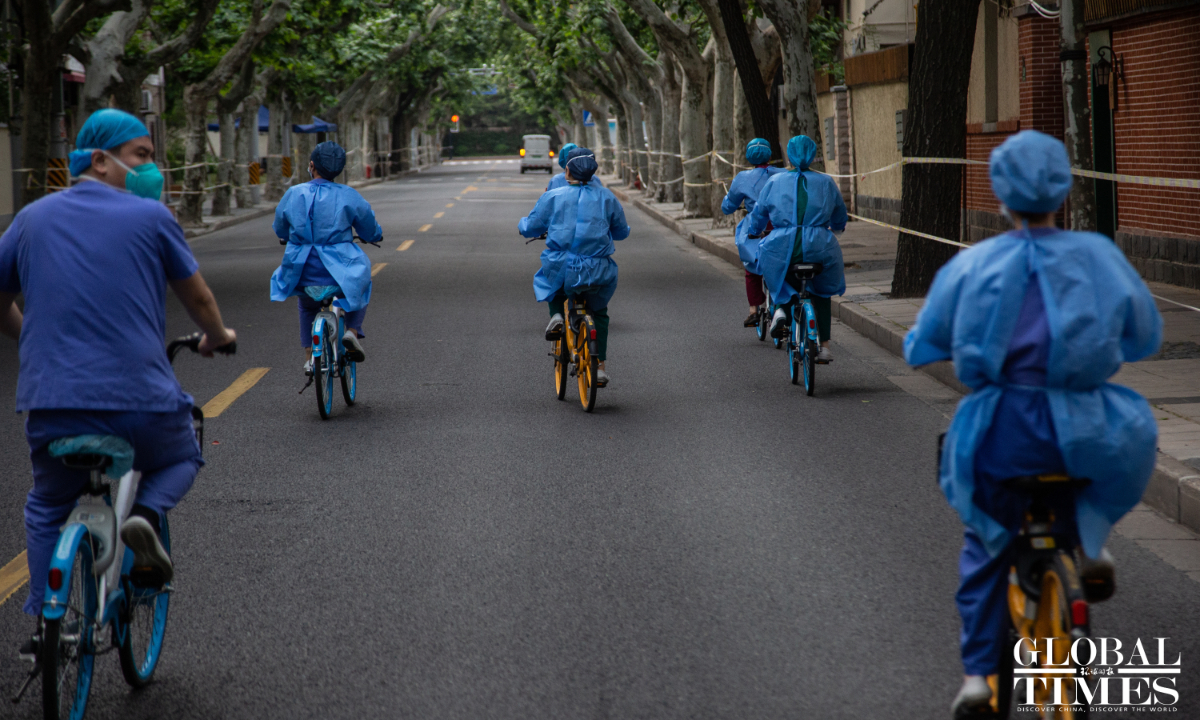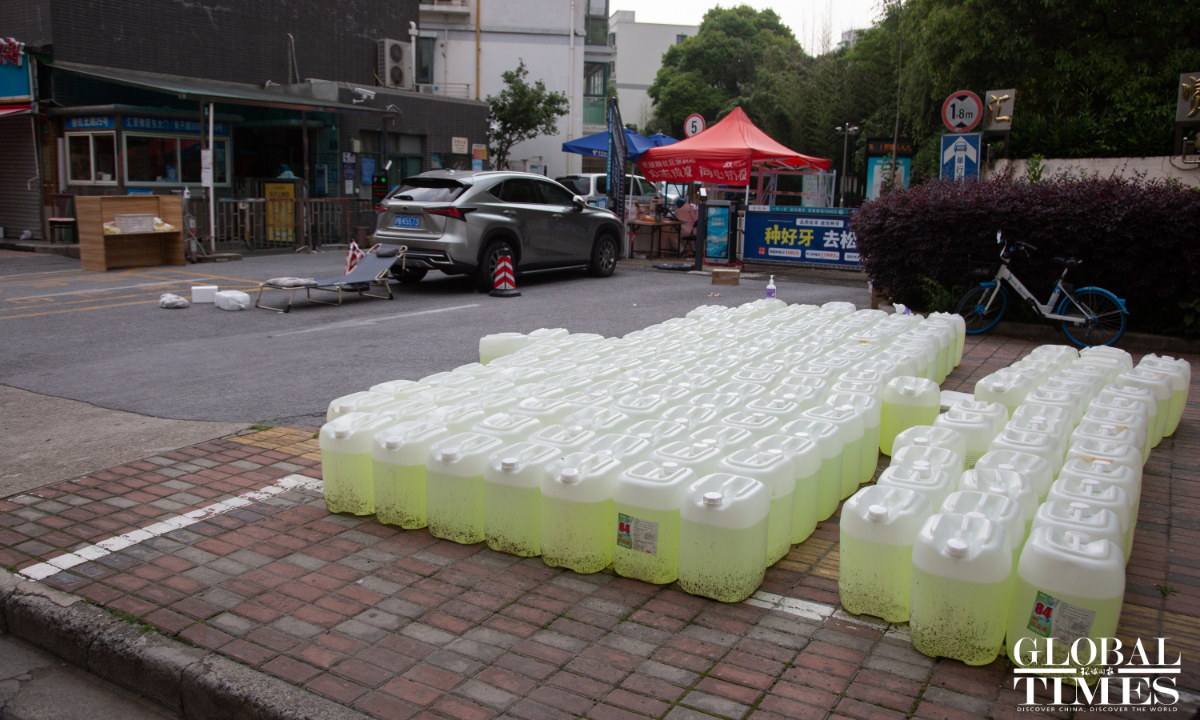Shanghai details plan of resuming normalcy in June
Having been dragged into a COVID-19 lockdown for more than six weeks, Shanghai on Monday finally saw a glimmer of hope as the municipal government started to resume commercial operations and production and also set a goal to resume normal life in June. What it is like in Shanghai as the city cautiously takes the first step toward returning to normalcy?
A number of Shanghai residents reached by the Global Times on Monday said that they were allowed to step out of their compounds after getting approval from the community workers, but only for a certain period of time and on nearby streets. A handful of shops and supermarkets are gradually reopening, but the city is much quieter compared with the pre-outbreak era.
As Shanghai's daily tally for COVID-19 new cases dropped to 1,000 for the first time, with 69 confirmed cases and 869 asymptomatic patients being recorded on Sunday, Vice Mayor Zong Ming, speaking at a daily news conference on Monday, gave a clear timetable for a return to normalcy in June.
Zong said that 15 out of 16 districts in the city had curbed viral infection outside quarantined areas. The city also allowed taxis and private vehicles to go on streets in certain areas. Some parks in the Fengxian district began to open to the public, with caps on the number of visitors.
It is expected that the normal production and life order of the whole city will be fully restored between June 1 and mid- or late-Juneunder the premise of strictly preventing the rebound of the epidemic and controlling the risks, Zong said at the press conference.
An employee from one of the companies that operate Shanghai subwaystold the Global Times on condition of anonymity that the subway has been undergoing trial operations in recent days to prevent malfunctions of machines after long periods of disuse.
Those who live in communities without new cases for the past two weeks can go out of their compounds, on the premise that their community is safe, and their neighborhood street is also safe, which means no new cases during the period of time, a Shanghai government employee told the Global Times.
A resident surnamed Chen said that his community in Sunjiang district told residents to apply for approval from community workers before stepping out of the compound. "Every household is allowed to send one person to go out for only four hours per day," Chen told the Global Times on Monday. He noted that when the restriction was loosened days ago, there was a long line at the only supermarket that is open in his neighborhood, but "today I saw no lines, which means it is turning normal."
Some other residents said that their communities began to issue permits for them to go out on Monday. The first destination for most of them was the supermarket.
Another resident surnamed Chen, who went out to see a dentist on Monday, noticed that very few pedestrians were seen on the streets, and many streets were cordoned off. Many shops are still closed, said Chen, noting that those that are open for business use small windows to sell items.
An owner of a fruit shop in Huangpu district said that he has not yet resumed business. "My district has not curbed infections within communities yet, which is the condition for shops to open…The best scenario is that my shop will be opened after ten days," he said on Monday.
But for someone who has been staying at home for 57 days, even the smallest step toward normalcy is better than nothing at all, said Li Cuihua, a Shanghai resident.
A resident in Jingan district surnamed Lin said that two of her neighbors left Shanghai on Sunday to go to their hometowns. "Once your Shanghai community worker agrees to let you go, and the community of your recipient place agrees to have you, you are good to go," Lin said.
On the Monday conference, Zong also said Shanghai will increase the number of trains to other cities starting on Monday, and will resume domestic flights later on, after many trains and flights were suspended to and from Shanghai during the lockdown.
Lu Hongzhou, head of the Third People's Hospital of Shenzhen, said Shanghai's drop in cases indicated that the city has achieved a phased victory over COVID-19. He also believed the city should be cautious on its return to normalcy as the risk of an uptick still exists.
To prevent a rebound, Lu suggested residents show a 24- or 48-hour valid nucleic acid test before entering public places. A similar practice is being adopted by Beijing, another metropolis that is also battling with coronavirus.
A daily nucleic acid test for people in high-risk industries, such as medical workers and deliverymen, should be insisted on, Lu noted.

Local residents were seen on the streets in Shanghai. Photo: Shi Liu/GT
Wu Jinglei, director of Shanghai's Health Commission, said at the press conference on Monday that as Shanghai hospitals are gradually reopening, the risk of a rebound still exists. Wu required medical institutes to prevent in-hospital infections, and to test medical workers in facilities such as makeshift hospitals and fever departments, on a daily basis.
Shanghai has fully prepared and could reach the goal based on the current hard-won results, Lu said, noting that an orderly resumption will be helpful to increase residents' confidence and ease their worries.

Disinfection supplies piled up at the entrance of a local community. Photo: Shi Liu/GT
Photos
Related Stories
Copyright © 2022 People's Daily Online. All Rights Reserved.










